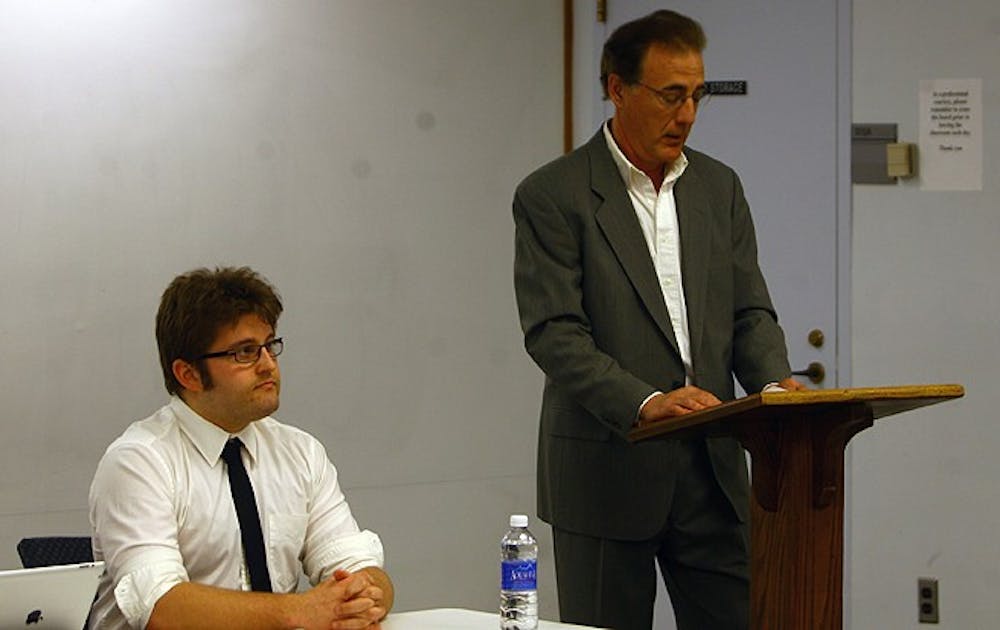A bias against oil and nuclear energy as fuel sources is impeding industrial progress, said Alex Epstein, Trinity ’02, in a panel discussion Wednesday.
Epstein, founder and director for the Center of Industrial Progress, and Thomas Eiden, a nuclear materials researcher at the University of Wisconsin-Madison, argued the importance and efficiency of oil and nuclear energy in the modern day as well as the future. The talk sought to expose students to arguments opposing clean energy development.
“Students need to hear a philosophic and scientific defense of oil and nuclear,” said Gary Hull, director of the Program on Values and Ethics in the Marketplace, which organized the talk.
Epstein outlined how oil is vital not only to transportation but also to fields such as agriculture, mining and medicine, which are not always central to conversations on energy. Oil has been central to many major improvements in vital parts of daily life, such as expanding food production, he added.
“The function oil is filling is in fact a life-and-death function,” Epstein said. Efficiency and reliability often are not considered when discussing alternatives to fossil fuels and nuclear power, he noted. An energy source may produce few carbon emissions, but still be a costly and ineffective means of producing power, Epstein added, using wind and solar energy as examples.
Both Epstein and Eiden cited energy density—the amount of energy stored in a system—as one of the most significant metrics when considering energy efficiency. Nuclear energy exhibits high energy density, with one gram of uranium containing the energy in 600 gallons of oil.
Governments have not supported nuclear energy because it is considered harmful, Epstein noted. He advocated decreasing regulations on nuclear and oil energy production which result in unnecessarily high implementation costs.
“There is a general fear of man-made substances or substances that we create,” he said. “The distinction to make is what is actually safe or what is actually dangerous based on the context.”
Eiden added that although early forms of nuclear energy may have been hazardous, current nuclear technologies are quite safe in comparison to other combustible fuels such as coal or oil, which can cause spontaneous explosions. In contrast, emergencies at nuclear plants can be detected early and allow more time to defuse the situation.
“Whatever the law is, it needs to be scientific—it can’t hold one technology to a different safety standard than another,” Epstein said.
Although, current energy alternatives are not as effective as oil or nuclear, Epstein said he did not oppose the idea of using different forms of energy if they prove to be productive and economical.
“The moral principle is that you have the right to use the best kind of energy at any given time,” he said. “Morally, you should use the best, and you should keep trying to make it better.”
An earlier version stated that one gram of uranium was equivalent to 600 barrels of oil.
Get The Chronicle straight to your inbox
Signup for our weekly newsletter. Cancel at any time.

